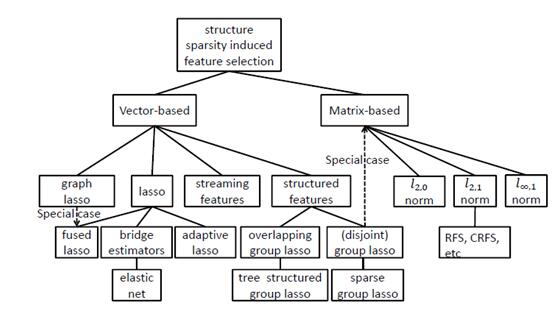
Institute of Intelligent Machines (IIM), Hefei Institutes of Physical Science, published a survey on sparse learning in IEEE Transactions on Neural Networks and Learning Systems.
It summarizes the sparse learning and its application to feature selection, which is useful for the freshman to begin in this area, and provides an in-depth understanding to this research field as well.
In many pattern recognition tasks, researchers are often confronted with very high-dimensional data.
Feature selection (FS) algorithms are designed to identify the relevant feature subset from the original features, which can facilitate subsequent analysis, such as clustering and classification.
Structured sparsity-inducing feature selection (SSFS) methods have been widely studied in the last few years, and a number of algorithms have been proposed. However, there is no comprehensive study concerning the connections between different SSFS methods and how they have evolved.
GUI Jie, the author of this paper as well as a scientist of IIM, attempts to provide a survey on various SSFS methods, including their motivations and mathematical representations.
The survey explores the relationship among different formulations and proposes a taxonomy to elucidate their evolution. The existing SSFS methods are divided into two categories, i.e., vector-based feature selection (feature selection based on lasso) and matrix-based feature selection (feature selection based on r, p-norm).
Furthermore, FS is combined with other machine learning algorithms for specific applications, such as multitask learning, multilabel learning, multiview learning, classification and clustering.
This survey not only describes the differences and commonalities of these methods based on regression and regularization strategies, but also provides useful guidelines to practitioners working in related fields.

Taxonomy of structure sparsity-induced feature selection. (Image by GUI Jie)

86-10-68597521 (day)
86-10-68597289 (night)

86-10-68511095 (day)
86-10-68512458 (night)

cas_en@cas.cn

52 Sanlihe Rd., Xicheng District,
Beijing, China (100864)

